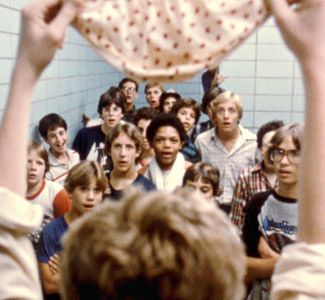Features, Health and Wellness
How Young People Learn about Sex and Relationships
Now more than ever, young people are exposed to images and stories about sex through social media that can be confusing and confronting.
They may also talk with their friends or look online for answers to their questions, but the information they seek will not always be accurate, or age-appropriate.
New research from the Medical Research Councils shows that there are differences in how young women and men learn about sex and relationships.
But what are some healthy ways for adolescents to gain this information without receiving overly sexualized ideas about the opposite sex?
Sex Education in School
Research has shown that talking to young people about sex does not encourage them to experiment sexually.
Contrary to popular belief, young teens who receive comprehensive sexual education have a lower risk of experiencing an unplanned pregnancy, STDs/STI’s, and are more likely to delay their first sexual experience.
Sex education is a way of providing children and young people with the skills and knowledge to manage their sexual well-being.
When it comes to developing positive relationships, many teens and adolescents refer to what they see on television and in movies as an accurate portrayal of how relationships form.
This should not be the case.
Although these are topics that parents should be discussing with their children, it’s evident that young people spend the majority of their time in the classroom.
Having a positive discussion about sexuality and relationships
Talking about sex and relationships, especially with children, is taboo in Western culture.
A lot of parents feel as if these are things that should only be discussed among adults.
But with the media, only a few clicks away, its nearly impossible to keep young men and women away from the unknown.
That’s where having a positive approach to having the talk comes in handy.
Having a positive approach in talking about sex and relationships with your child looks like:
- Acknowledging that adolescence is a time of sexual development and experimentation
- Remembering not to assume all young people are opposite-sex attracted
- Supporting the right of young people to develop healthy, respectful and consensual relationships
When to start having “the talk”
One way that young people learn about sex and relationships is at home.
Oftentimes, parents are unsure of when to have “the talk”, but it’s best for children to hear the facts at home, rather than from peers.
It is completely normal to feel awkward or unsure when talking with your child about sex.
The easiest way is to start from a young age by using the correct names for body parts. This is where children will learn how to properly identify private parts by medical terms rather than by nicknames.
Not only does this empower children at a young age, but it also allows them to use their voices when advocating for themselves in the future.
The first step in talking to your child about sexuality is to prepare yourself. You are not alone if you feel unsure, as many adults have not had comprehensive sexuality education themselves.
As a parent, your job does not stop once the child is of age to go out on their own in the world. By creating a loving and harmonious environment, children will feel safe when having questions about sex and relationships.
What are some healthy ways that you think young people should learn about sex and relationships? Comment below to start the discussion!



